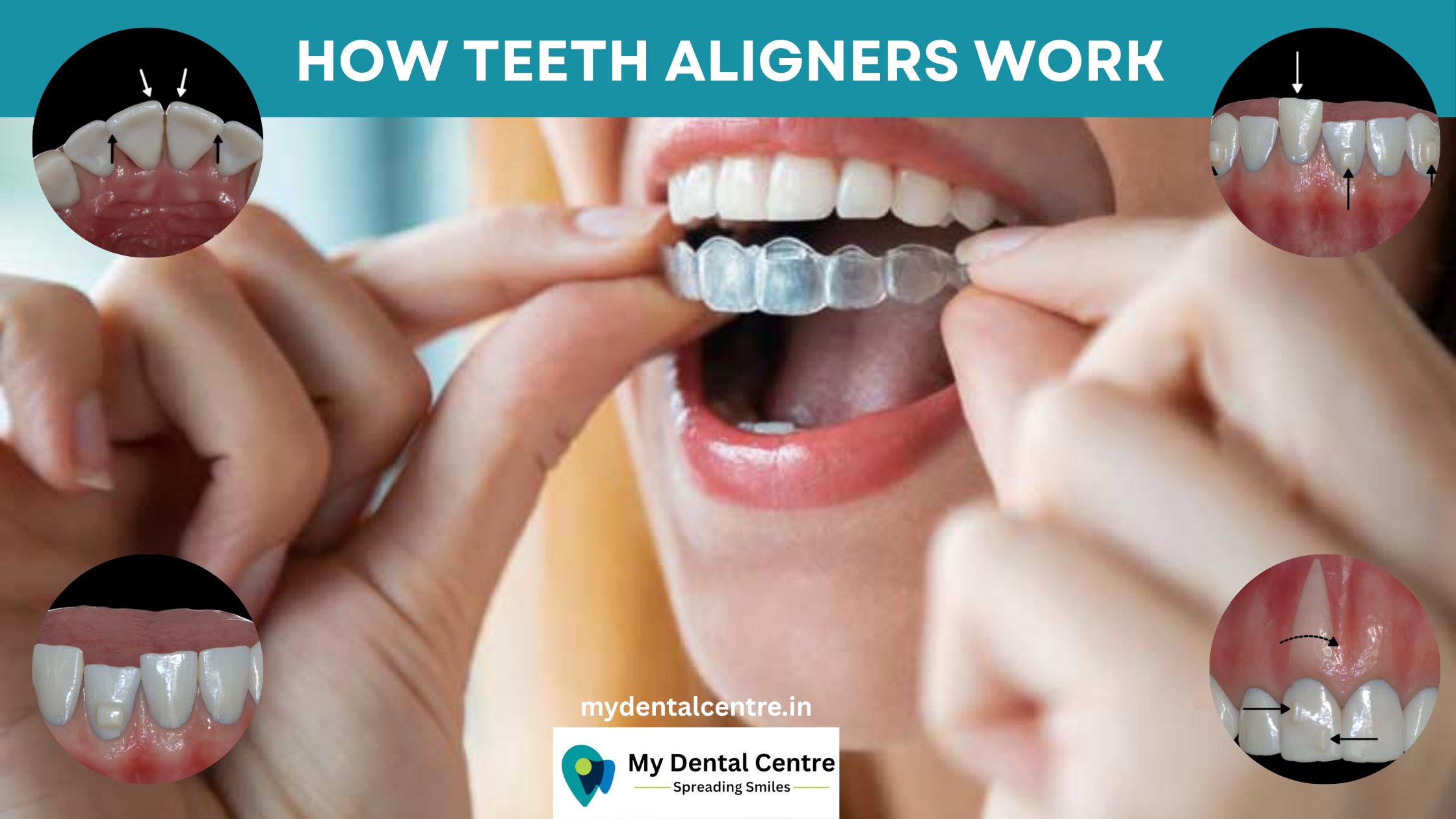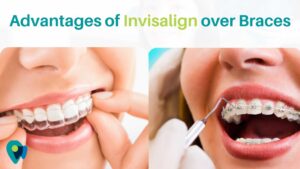How teeth aligners work
Aligners have become a hot topic ever since Align technology, Santa Clara introduced- ‘Invisalign’ in 1998. These are a set of Removable Polyurethane based appliances used to treat numerous types of alignment problems in teeth. Advent of Digitalisation, especially computer aided designing (CAD) and 3D-printing techniques have allowed for an industrial approach to orthodontic movement of teeth and correction of malocclusion.
This is one of the most aesthetically forgiving treatments as compared to traditional braces. Recent systems include attachments, auxiliaries and more evolved forms of fabrication material allowing aligners to produce a great range of movements required to treat complex cases.
Aligner based orthodontic treatment involves incremental movement of teeth, by using multiple successive aligner sets, each of which progressively repositions teeth by small amounts.
This movement is brought upon via two methods: The shape moulding effect and auxiliary effects.
The shape molding effect occurs when the aligners are shaped in a way that gradually moves the target teeth into the desired position- ‘molding the movement of target teeth’. There are regions of relief and intimate contact with the aligners.
The full treatment consists of sets of aligners which start from initial tooth position to the final desired outcome.
Whereas, auxiliary effects include attachments and power ridges with strategic arrangement on tooth or aligners which enhance force delivery and predictability of tooth movements.
The forces which are generated through the above two methods are transmitted to the periodontium, most importantly the bone, causing changes in bone architecture which allows for tooth movement and adaptation.
Since the movements are in the physiological range, undue stresses are not generated allowing for a smooth passage of treatment without pain and discomfort. This makes aligners one of the most comfortable and successful treatments out there!

What are Buck Teeth?
Buck teeth, also known as protruding or overgrown teeth, refer to upper front teeth that extend too far forward, creating an overbite. This condition can affect both children and adults. It can be caused by several factors, such as genetics, thumb-sucking in childhood, or abnormal jaw growth.
The impact of Buck Teeth?
Buck teeth can affect both your oral health and self-confidence. Here are some common problems that people with buck teeth might face:
- Aesthetic Concerns: The appearance of buck teeth can make you feel self-conscious and lower your self-esteem.
- Speech Difficulties: It may be hard to pronounce certain words clearly because of the position of your upper front teeth.
- Increased Risk of Injury: Protruding teeth are more likely to get injured, especially during sports or accidents.
- Oral Health Issues: Misaligned teeth can make brushing and flossing harder, leading to an increased risk of cavities, gum disease, and other dental problems.
Treatment Options for Buck Teeth?
The good thing is that there are several ways to treat buck teeth, and My Dental Centre offers the following options:
Why Choose My Dental Centre for Buck Teeth Treatment?
- Experienced Orthodontists: My Dental Centre has a skilled team of orthodontists who specialize in treating misaligned teeth, including buck teeth.
- Personalized Treatment Plans: We create customized treatment plans based on your individual needs to ensure the best results.
- Advanced Technology: Our clinic uses the latest orthodontic technology to offer treatments like traditional braces and Invisalign, among other innovative options.
- Patient-Focused Care: We prioritize patient education and ensure you’re actively involved in every step of your treatment plan.
Happy Patients: Many of our patients have shared positive experiences with us, praising the successful treatment they received at My Dental Centre.




